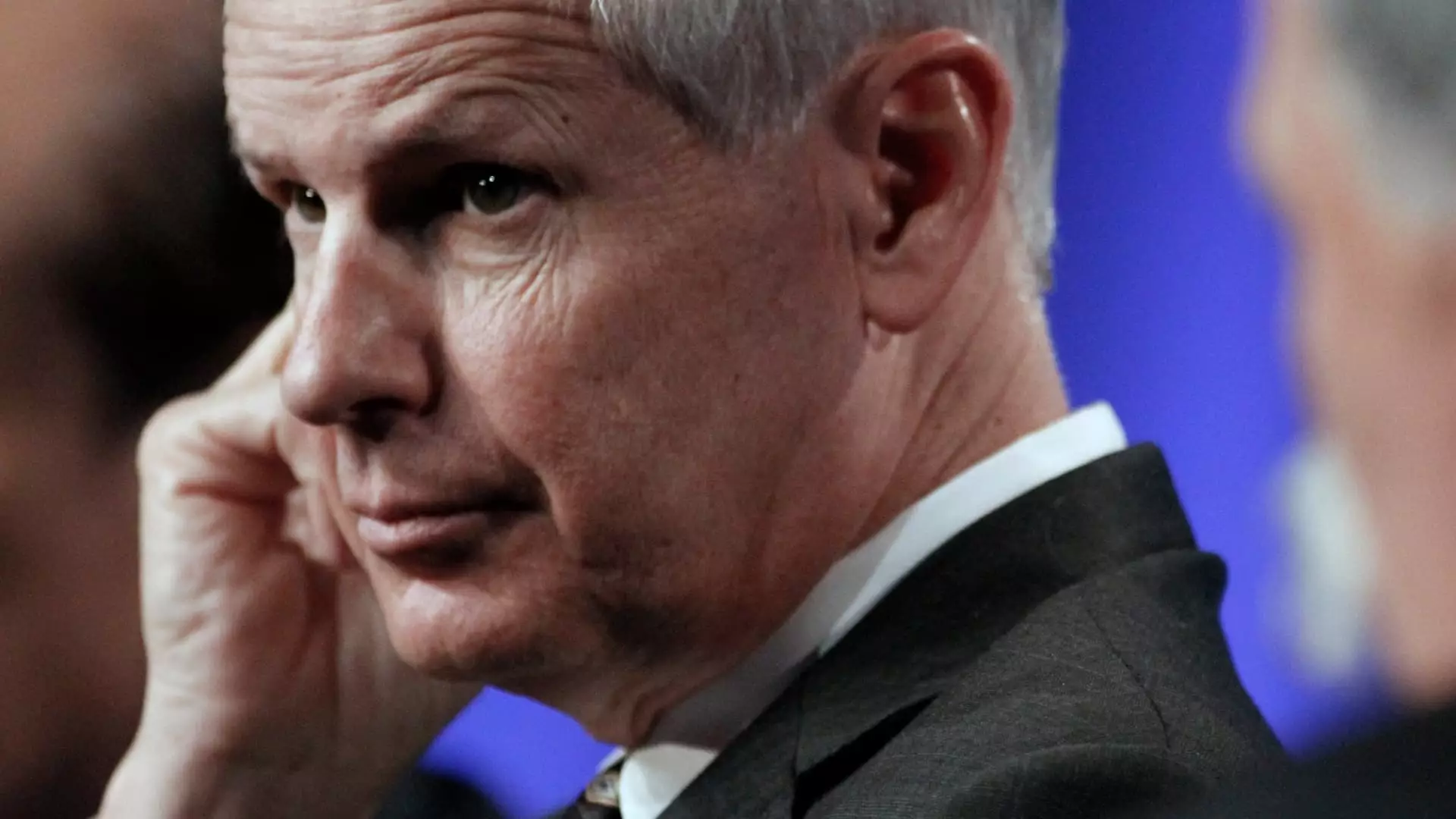The landscape of the pay-TV industry is undergoing seismic shifts, and at the heart of it stands EchoStar’s founder Charlie Ergen, who is on the brink of selling the television business he established over four decades ago. The potential merger of Dish Network with DirecTV, both prominent names in satellite television, signals not only a strategy to manage looming debt but also reflects the broader challenges faced by traditional TV providers in an era dominated by streaming services.
EchoStar’s recent negotiations with DirecTV underscore the urgency of addressing its financial predicament. As industry insiders have indicated, discussions are reportedly advanced, with dire predictions suggesting that bankruptcy is on the horizon if they cannot successfully navigate their debt of nearly $2 billion due by November. With only $521 million in cash as of mid-2023, EchoStar faces a daunting task to revitalize its operations as cash flow projections remain bleak. Such financial instability compels Ergen to reconsider EchoStar’s operational strategies and alliances.
Unlike earlier attempts to merge with DirecTV, such as those attempted in 2002, this deal comes at a time when both companies are desperately seeking solutions to subscriber attrition. As pay-TV subscriptions decline, the necessity for a merger appears increasingly justified, particularly as both companies face fierce competition from streaming giants like Netflix, Disney+, and Amazon Prime Video.
Reports suggest that the structure of the proposed deal is all cash, where DirecTV would absorb EchoStar’s satellite TV and digital segments, including the online platform, Sling TV. This could potentially value the transaction at over $9 billion, an amount reflecting the aggregate liabilities that accompany these services. However, the expected deal is not without its complications; the requirement for approval from creditors and the ongoing challenges of bankruptcy prospects are hurdles that could impede progress.
As both companies grapple with their considerable losses—Dish Network reporting 6.1 million satellite subscribers and 2 million for Sling TV, while DirecTV has seen its subscriber base decline to around 11 million from a previous 15.4 million—this merger could either represent a lifeline or further complicate both entities’ futures. The caution from analysts like Craig Moffett of MoffettNathanson suggests that a looming bankruptcy within EchoStar could dramatically reshape the dynamics of the deal and necessitate new capital influx for survival.
Amid these financial tribulations, the pay-TV sector is at a crossroads largely fueled by the streaming revolution. Traditional satellite TV platforms have faced a steep decline, exacerbated by changing consumer preferences who gravitate towards on-demand viewing experiences. The stark contrast between Dish Network’s subscriber losses and the growth trajectory in streaming underscores a transitional challenge that has swept through the industry. Moreover, this shift highlights the increasing relevancy of on-demand content in consumer entertainment choices.
The dire stakes of potential bankruptcy and subscriber attrition force both Dish and DirecTV to innovate continuously. DirecTV’s latest initiatives to recast its brand as not merely reliant on satellite dish installations but also as a competitive streaming service aim to garner new subscribers. Their recent ad campaign emphasizes the versatility of delivery methods, potentially reaching customers who might have previously dismissed the company’s offerings.
As negotiations unfold, the fallout could extend beyond merely EchoStar and DirecTV. The implications of a merger could reshape the competitive playbook for many other traditional TV operators still attempting to assert their relevance in an increasingly fragmented media landscape. With predictive strategies such as genre-specific bundles as explored in DirecTV’s deal with Disney, companies are rethinking their approaches to address customer expectations and retention.
Thus, the wider narrative surrounding the proposed EchoStar-DirecTV merger encapsulates a critical moment for the pay-TV industry as it reconciles with an evolving consumer base. Whether this deal transcends mere survival or evolves into a new era of innovation remains to be seen—what is unmistakable is that the traditional pay-TV model is clinging to life during a tumultuous transformation that demands agile and responsive strategies.

